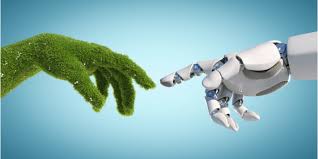10 EcoFriendly Life Skills:
Reducing Meat Consumption :
Did you know that reducing meat consumption has a significant impact on the environment? Yes, it is. By reducing your meat consumption, you will be better for the planet. A significant proportion of the earth’s surface is used by livestock. Deforestation is widely practiced with the sole purpose of clearing livestock land. The result is the emission of methane from cattle and the use of fertilizers. Together they cause greenhouse gas emissions. Livestock also contributes significantly to water pollution from rivers and streams.
Save Paper:
Familiar In today’s digital world, instead of printing data on paper, you can save it to a file on your computer to reduce paper consumption. After all, we protect the environment. Another option is to use only a small piece of paper and tear it from the cornersinstead of scribbling in the middle. The remaining paper can be used for other purposes. By reducing the amount of paper used, it savesa lot of energy used in papermaking, reduces the number of trees each year, and eventually turns green.
Waste Recycling :
Most household devices end up in landfills, with negative environmental factors. To minimize the amount of waste sent to landfills, most of it needs to be recycled. For example, plastic, paper, glass and metal can be recycled and reused. Before recycling, you need to know how to recycle the materials that make them up, separate them, and recycle them according to their categories. Almost all paper
products can be recycled except those containing plastic or metal parts. Similarly, some types of plastic are recyclable and some are not. Plastics containing polystyrene terephthalate, such as water bottles, can be recycled, but plastics containing polyvinyl chloride, such as clear plastic food packaging, cannot be recycled. The same applies to glass and metal recycling. If that sounds complicated and you still don’t know how to recycle waste, you can hire an eco-friendly waste management company to do it.
Unplug all electrical equipment when not in use :
Another overlooked way to reduce household electricity bills and protect the environment is to unplug electrical equipment. Some devices, such as TVs, PCs, air dryers, and kettles, are constantly sucking energy, so they are sucking in your wallet. A small amount of current can flow even when these devices are off. Therefore, the best way to store them is to separate them. You can also save on yourelectricity bill by washing all your clothes with cold water. According to
the Worldwatch Institute, 85% of the energy used in clotheswashing machines is used to heat water. Also, after washing, consider using natural light to hang it on the clothesline to dry it,
Reuse:
Learn to consider repairing or disposing of equipment when it fails or breaks. Repairing them is more economically valuable than disposing of them. We recommend that you allow the device to be repaired directly or acquire the skills to repair it through DIY. This saves energy, time, money and hone your skills when buying new ones. Innovative used clothing can be used to make pillowcases instead of sending it to landfills. Alternatively, you can donate clothing to people in need. This helps keep your home naturally warm andat the same time saves on utility bills.
Adopting solar panels
solar panels are environmentally friendly because they reduce the amount of carbon emitted to the environment. They use sunlight to generate energy, reducing energy costs.
Energy Saving:
Keeping Warm Check out the different ways to keep warm in the colder months. For example, instead of turning on the heating, you can wear warm clothing. Also, when the floor is open, cover it with a floor covering to keep the floor warm. Know what you are buying
Recycling Garbage:
Today, most health problems are caused by toxins released into the atmosphere by garbage.
Garbage sent to landfills should also be constantly monitored to ensure that harmful chemicals are not released into the environment. There are some questions that need to be answered before making a purchase decision. What is the life expectancy of an item? Howlong can it be used? Will it end up in the trash after that useful purpose? It’s time to invest in reusable products for a sustainable lifestyle.
Home garden:
Plant seeds in pots and windows to grow your own edible herbs. The small area helps to make space for fruits and vegetables. You will save a lot of money and it will give a sustained life.

